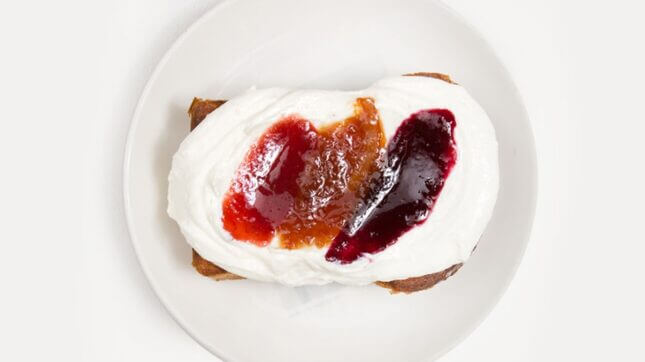Fancy Ass Toast Restaurant Sqirl Is Under Fire for Selling Artisanal Moldy Jam
Latest

Sqirl, an incredibly trendy and Instagram famous restaurant in Los Angeles, California, is quickly tumbling from grace as jam lovers are discovering that the secret ingredient in the restaurant’s pricey influencer-treasured jam is mold. According to Eater, former employees of Sqirl are whistleblowing on their time at the operation and claiming that the jars full of jam often contained mold, which they were instructed to just scrape off before serving it to customers. For context, Sqirl’s self-proclaimed “famed ricotta toast,” which is a toasted brioche slice with ricotta and jam, costs $9, no extra charge for the fermentation.
Sqirl’s founder, Jessica Koslow, was hailed as “revolutionary” in the New York Times for her work in putting rice in a bowl and adding healthy toppings, like vegetables. But Koslow’s empire was primarily built on a jam foundation. The jams, which are jarred and sold as special treats, contain all the buzzwords that strike up a vision of sunny Califonia living to the consumer. The jams, which can be purchased on a subscription basis for $180 a year, are described as organic, seasonal, and come in a variety of fancy-seeming fruit flavors, like rose geranium and Moro blood orange. “The jam is fragrant and not overly sweet,” the Times wrote in 2013 “and you want to eat it with a spoon.”
-

-

-

-

-

-

-

-

-

-

-

-

-

-

-

-

-

-

-

-

-

-

-

-

-

-

-

-

-

-

-

-

-

-

-

-

-

-

-

-








































